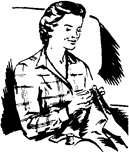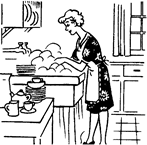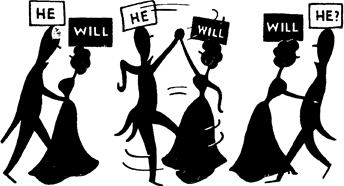
Заглавная страница Избранные статьи Случайная статья Познавательные статьи Новые добавления Обратная связь FAQ Написать работу КАТЕГОРИИ: ТОП 10 на сайте Приготовление дезинфицирующих растворов различной концентрацииТехника нижней прямой подачи мяча. Франко-прусская война (причины и последствия) Организация работы процедурного кабинета Смысловое и механическое запоминание, их место и роль в усвоении знаний Коммуникативные барьеры и пути их преодоления Обработка изделий медицинского назначения многократного применения Образцы текста публицистического стиля Четыре типа изменения баланса Задачи с ответами для Всероссийской олимпиады по праву 
Мы поможем в написании ваших работ! ЗНАЕТЕ ЛИ ВЫ?
Влияние общества на человека
Приготовление дезинфицирующих растворов различной концентрации Практические работы по географии для 6 класса Организация работы процедурного кабинета Изменения в неживой природе осенью Уборка процедурного кабинета Сольфеджио. Все правила по сольфеджио Балочные системы. Определение реакций опор и моментов защемления |
Mrs. Priestley and some othersСодержание книги
Поиск на нашем сайте
Mrs. Priestley is a pleasant-looking woman of about forty, with warm brown hair and soft dark-brown eyes. MRS. PRIESTLEY IS SEWING She is kind and gentle, but she man ages her house (and, in her quiet way, her husband) very well. He is, of course, a clever men, but a little unpractical, and he needs Mrs. Priestley to look after him. Mrs. Priestley, on the other hand, is very practical and full of common sense2. The Priestleys have two children, John and Margaret. John is eighteen, six foot tall, and a fine manly fellow. He is at the university and is studying to be a doctor. He is a clever, hard working student, a first-class footballer, boxer, and runner. He is strong both in body and character, and quiet and thoughtful like his father. He will make a good doctor. Margaret is only eleven. She is lovely little girl with golden hair and dark blue eyes and a spirit that is always bright and happy, full of joy and gaiety. She isn't fond of study of any kind, but she loves music and dancing and she sings very pret tily. She is like a ray of sunshine in the house. Mr. Priestley is very fond of his son John and very proud of him; and Margaret is the apple of his eye3. But here comes Mrs. Priestley. "Good morning, Mrs. Priest ley; how are you?"
1 06 3TOM CM. B Kmcre II. 2 Common sense - 3,n:paBhrn CMh CJI. 1 To be the apple of one's eye - 6bITh oqeHh,n:opornM, ropwm mo6MMh M KeM-JIM60. M r s. P r i e st 1e y: Good morning, everyone. I'm very well, thank you. You want to know about my house. Well, I am very pleased to be here and I will gladly tell you something about it. The house is rather big, and there is a lot of work in it, so I can't do everything alone. I have Susan and Lizzie to help me with the work. Lizzie is our cook, and she is a very good cook, but she is no good at all at housework. Now, Susan is very good at house work, but she can't cook at all - she can't even boil an egg. But that is all right, for Lizzie gets on with her cooking, and Susan and I do the housework - and, believe me, we all work very hard. Susan and Lizzie get up at a quarter to seven, and make the fires and open the windows. I get up at half past seven, and so does my husband, in time for breakfast at eight o'clock. We have breakfast in the breakfast-room. I like to begin the day well, so our breakfast is always a good one. My husband reads his newspaper and smokes a cigarette with his last cup of tea, before he begins his work at nine o'clock. Then Lizzie and Susan begin to clean the house, wash up, make the beds, and get the vegetables ready for lunch. We have lunch at one o'clock. After that I do some sewing, or go out for a walk, or go to see people.
of bread and butter and small cakes. After tea we sit and talk or listen to the wireless or read. Sometimes we go to the cinema or the theatre. About seven or eight o'clock we have dinner or supper, and at eleven o'clock I generally go to bed, but my husband likes to sit up late and read or write in his study. Well, that is all for the present. I will tell you more about the house some other time. SUSAN WASHES UP Y nP A >K HE HMSI I. BcTaBhTe nponyru,euuh 1e cJioua: 1. You - know Mr. Priestley the teacher and writer. 2. In this lesson you - hear about his wife. 3. Today she - tell you - - about it. 4. Mrs. Priestley is a - looking woman of - forty. 5. She is kind and - but she - her house very well. 6. He is, of -, a clever man but rather -. 7. The Priestleys have two -, John and Margaret. 8. John is a fine - fellow. He is at the -. 9. Margaret is a - little girl with - hair. 10. She is always happy and full of -. 11. She isn't - of study of any kind. 12. She is like a - of sunshine in the house. 13. Margaret is the - of his eye. 14. I am very - to be here. 15. The house is big and there is a - of work in it, so I can't do everything -. 16. Susan can't even - an egg. 17. Lizzie and Susan get the - ready for lunch. 18. After lunch I do some - or go out for a walk. 19. After tea we sit and talk or listen to the -. 20. Well, that is all for the -. II. OTBeTbTe ua cJie.ll.ymmue Bonpocb1. B oTBeTax ucnoJib3yHTe CBOH co6CTBeHHb e npe)J,JIO.lKeHHH: 1. Who will tell you about the Priestleys' house? 2. How old is Mrs. Priestley? 3. What colour are her eyes and her hair? 4. What does she manage very well? 5. How many children have the Priestleys? 6. What are thair names? 7. How old is John and where is he? 8. What is he studying to be? 9. What is he fond of? 10. What colour is Margaret's hair? 11. What does she do? 12. Is Mr. Priestley fond of her? 13. Who does the cooking in the Priestleys' house? 14. What time does Lizzie get up? 15. What time do you generally go to bed? 16. Do the Priestleys have an early breakfast? 17. Where do they have breakfast? 18. What does Mrs. Priestley do after lunch? 19. What do they have for tea? 20. When will Mrs. Priestley tell you more about the house? II,II;I10MATIIqECKIIE BhIP A)KEHIIJI III. B 3TOM ypoKe BaM BCTpeTHJIOCh Muoro H,ZJ,HOMaTH11ecKHx Bh pIDKe uuu, T. e. TaKHX Bh pIDKeHHH, KOTOphle aurnuqaue ynoTpe6JU IOT B no BCeeBHOH pequ. BbQ"llITe ux, a 3aTeM npH,!Q'MaHTe ua KIDK,!J,Oe H3 HUX npe)J,JIO:lKeuue: 1. a pleasant-looking woman. 2. a hard-working student. 3. a first-class footballer. 4. of course. 5. to look after him. 6. common sense. 7. He will make a good doctor. 8. of any kind. 9. on the other hand. 10. Susan is very good at housework. 11. Lizzie is no good at all at house work. 12. That is all right. 13. Lizzie gets on with the cooking. 14. I get up at seven o'clock. 15. We get the vegetables ready. 16. We wash up and make the beds. 17. I go out for a walk. 18. Susan brings in the tea. 19. My husband likes to sit up late. 20. That is all for the present. IV.I lpH,!Q'MaHTe O)J;HO-)J;Ba npe)J,Jlo:lKeHmt ua CJie)JJIOIQHe TeMhI: 1. Mrs. Priestley. 2. John Priestley. 3.Margaret. 4. Lizzie. 5. Susan. 6. The Priestleys' house. 7. Their breakfast. 8. Their tea. 9. Their evening. ,Il;HKTaHT Mrs. Priestley is coming to tell us all about her house. It is rather big and there is a lot of work in it, so she has Lizzie and Susan to help her. Susan does the housework and keeps the house clean. Lizzie cooks the breakfast, lunch and dinner. After breakfast Lizzie and Susan wash up, clean the house,make the beds and get the vegetables ready for lunch. Mrs. Priestley has lunch, does some sewing or goes to see people. In the evening, after tea, they all talk or read, listen to music or the wireless, or sometimes they go to the cinema or the theatre. LESSON 18
THE FUTURE TENSE B cne,rr,yro:w;MX rrpe,r:vro)Kemrnx;::i;aHbI rrpMMepbI 6y)Jylllero BpeMeHM: You will hear about Mrs. Priestley. She will tell you about her house. I will gladly tell you about it. You will hear more about it in Book II. BoT e:w;e HeCKOJibKO rrpMMepon: Richard Brown will be fourteen years old tomorrow. He will be up early tomorrow morning. His father will give him a new bicycle for his birthday. His sister Mary said to him, "You will be fourteen tomorrow; I shall be ten next June". ,[(JIH o6pa30BaHM51 6y)Jylllero BpeMeHM Mbl MCIIOJib3YeM rnaroJI will c Heorrpe;::i;eJieHHOM cPOPMOM (MHcPMHMTMBOM infinitive) ocHOBHOro rnarona, HarrpMMep: You will hear (infinitive) about Mrs. Priestley. She will tell (infinitive) you about her house. Richard will be (infinitive) ten next June. O;::i;HaKo c MeCTOMMeHM5IMM Inm1a (J, we) MbI MHor;::i;a MCIIOJih3yeM rnaron shall, a MHor;::i;a - will1• B pa3roBope rnaroJibI will, shall qacTo coKparn;aIOTCH;::i;o "ll". You' ll hear about Mrs. Priestley's house. He' ll be up early tomorrow morning. Richard' ll be fourteen tomorrow. I' ll be ten next June. 0TpM11aTeJihHaH cl>opMa o6pa3yeTcH rryTeM rrpM6aBJieHM51 OTPMllaTeJihHOit qacTMllhI not. Mrs. Priestley will not tell you about her house. Richard will not be fourteen until tomorrow. His father will not give him a bicycle.
AFFIRMATIVE NEGATIVE
1 3TO BCero JIHIIIb KpaTKOe o6n5ICHeirne. Eonee IIOJIHO 6yiJYII(ee BpeMH paccMaTPHBaeTCH B Kmrre II. Ishall not be ten until June. JVill not B pa3roBope 061>1'IHO coKparn;aeTcJI,n:o won 't. She won't tell you about her house. Richard won 't be fourteen until tomorrow. His father won't give him a bicycle. IIpM o6pa3oBaHMM norrpocMTeJI 1>Holi <PopMbI B 6y,n:yrn:eM npeMeHM rnaron1>1 "will': ''shall" CTaBJITCJI rrepe,n: rro,n:Jie)KffilUIM: JVill Mrs. Priestley tell us about her house? JVill you please tell us about your house? JVill Richard be fourteen tomorrow? Shall I1help you with your work? M r s. P r i e s t 1e y: You say the students want to hear about my house, Mr. Eckersley. Shall I tell them about it now?
|
||||
|
Последнее изменение этой страницы: 2016-04-19; просмотров: 1100; Нарушение авторского права страницы; Мы поможем в написании вашей работы! infopedia.su Все материалы представленные на сайте исключительно с целью ознакомления читателями и не преследуют коммерческих целей или нарушение авторских прав. Обратная связь - 216.73.216.102 (0.008 с.) |

 You already know Mr. Priestley, the teacher and writer. In this lesson you will hear about his wife, Mrs. Pristley, the Priestleys' house, and some of the people in the house. Mrs. Priestley knows all about the house; she does the work init every day, and today she will tell you a little about it 1.
You already know Mr. Priestley, the teacher and writer. In this lesson you will hear about his wife, Mrs. Pristley, the Priestleys' house, and some of the people in the house. Mrs. Priestley knows all about the house; she does the work init every day, and today she will tell you a little about it 1.
 We have afternoon tea about five o'clock, but for that we don't go into the dining-room. We go to the sitting-room, and Susan brings in the tea with plates
We have afternoon tea about five o'clock, but for that we don't go into the dining-room. We go to the sitting-room, and Susan brings in the tea with plates




